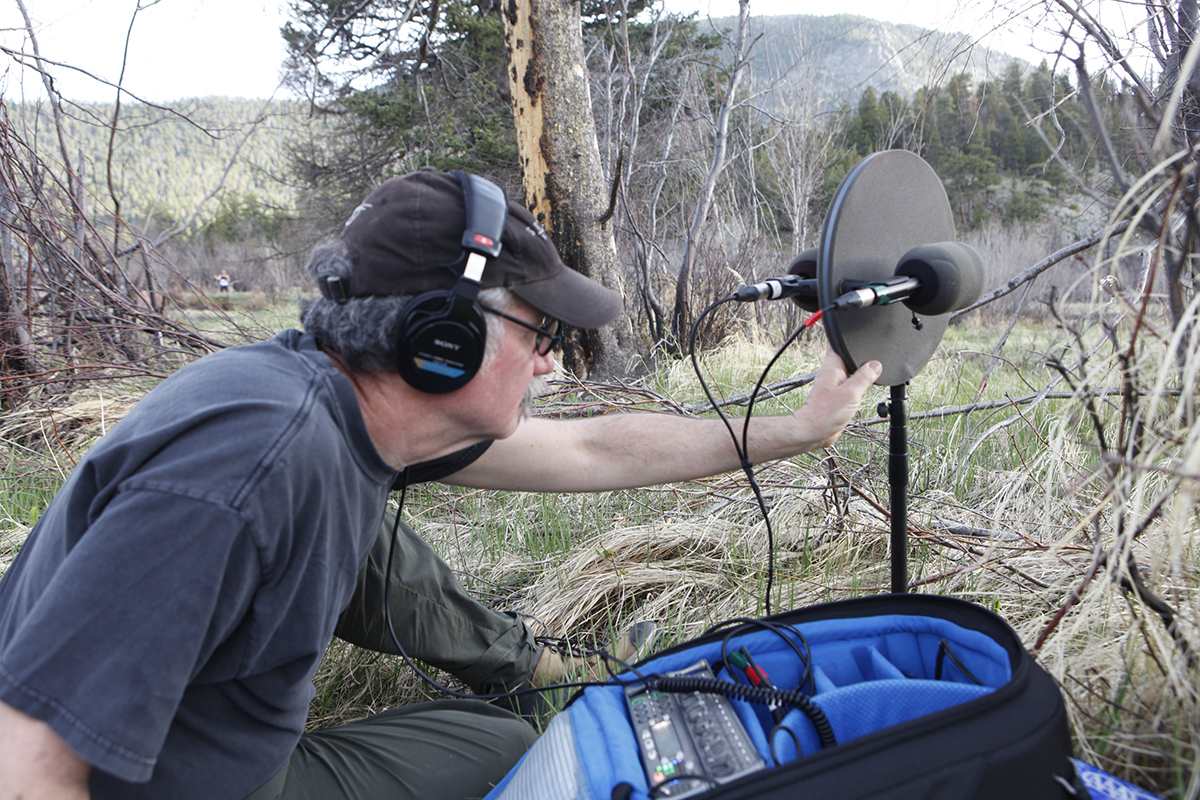Cornell audio producer's radio series wins award
By Krishna Ramanujan

An audio producer with the Cornell Lab of Ornithology has won a prestigious National Academies of Sciences, Engineering, and Medicine communication award for a radio series on biologists – including many from Cornell – who use sound to understand the natural world.
Cornell’s Bill McQuay and NPR’s Christopher Joyce and Alison Richards will share the 2016 National Academies Keck Futures Initiative Communication Award for the series “Close Listening: Decoding Nature Through Sound.”
The $20,000 award “recognizes excellence in reporting and communicating science, engineering and medicine to the general public,” according to the awards website. Winners will be celebrated Oct. 26 in Washington, D.C.
“I am always interested in bringing attention to sound and giving people an opportunity to listen to the world,” said McQuay, a former NPR sound engineer and technical director.
McQuay joined the Lab of Ornithology in 2007. He is audio producer for the Lab of Ornithology's Multimedia group.
“Close Listening: Decoding Nature Through Sound” began with an interest shared by McQuay and Joyce of what drew scientists to sound and what researchers learned by listening to the natural world. At Cornell, McQuay had ready access to scientists for whom sound is central to their studies, as well as sounds in the Macaulay Library’s sound archive, the world’s premier scientific repository of natural history audio, video and photographs.
The “Close Listening” series includes a story on how the stethoscope sparked the culture of listening in science, as explained by Cornell sociologist Trevor Pinch and Dr. Adam Law, clinical assistant professor of medicine at Weill Cornell Medicine, who trains his students to use stethoscopes. Other stories showcase Cornell’s Elephant Listening Project founder Katy Payne’s discovery that whales sing and elephants communicate with infrasound, and Bioacoustic Research Program senior scientist Chris Clark’s work in bioacoustic detection of threatened animals on land and in the sea.
“For me, what is most exciting about this award is the opportunity it affords for highlighting the seminal work that Cornellians have done by listening closely to the world,” McQuay said.
McQuay won a Grammy Award in 2000 for his work on a recording of Benjamin Britten’s “War Requiem.”
Media Contact
Get Cornell news delivered right to your inbox.
Subscribe